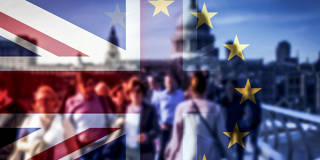
Europe Lives On
There is no denying that the United Kingdom's withdrawal from the European Union represents a loss for all involved, and strikes a blow against the very idea of Europe. But while Britain has left Europe, Europeans should not abandon the British legacy – particularly the deep, historical commitment to liberalism.
PARIS – Brexit is a disaster for the United Kingdom. Given the risk that it will now lose Scotland and Northern Ireland to secession, the country seems to have accepted the idea of Great Britain turning back into “Little England.” Britain is that rare lion that chooses to become as small as a mouse.